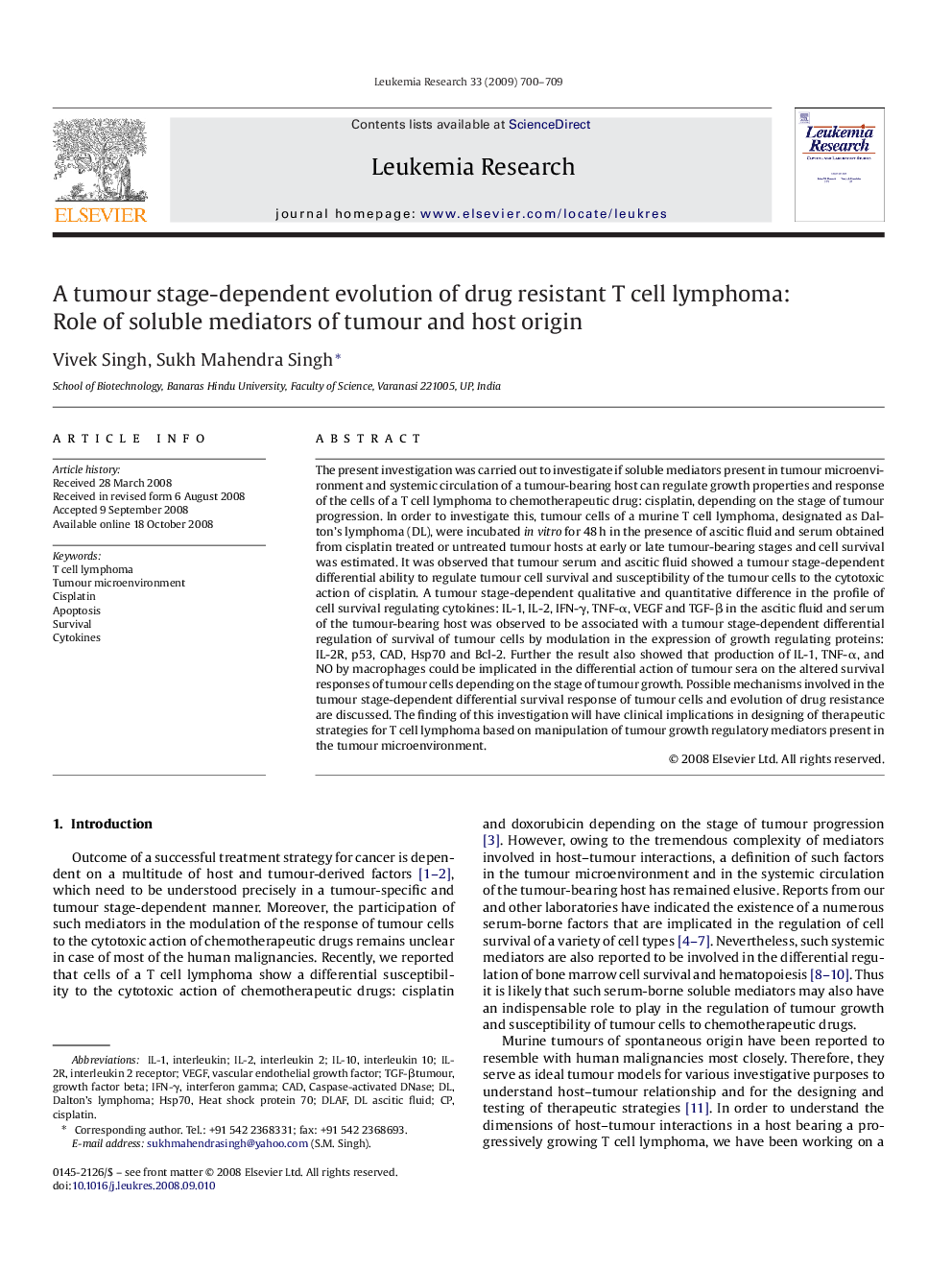| Article ID | Journal | Published Year | Pages | File Type |
|---|---|---|---|---|
| 2137888 | Leukemia Research | 2009 | 10 Pages |
The present investigation was carried out to investigate if soluble mediators present in tumour microenvironment and systemic circulation of a tumour-bearing host can regulate growth properties and response of the cells of a T cell lymphoma to chemotherapeutic drug: cisplatin, depending on the stage of tumour progression. In order to investigate this, tumour cells of a murine T cell lymphoma, designated as Dalton’s lymphoma (DL), were incubated in vitro for 48 h in the presence of ascitic fluid and serum obtained from cisplatin treated or untreated tumour hosts at early or late tumour-bearing stages and cell survival was estimated. It was observed that tumour serum and ascitic fluid showed a tumour stage-dependent differential ability to regulate tumour cell survival and susceptibility of the tumour cells to the cytotoxic action of cisplatin. A tumour stage-dependent qualitative and quantitative difference in the profile of cell survival regulating cytokines: IL-1, IL-2, IFN-γ, TNF-α, VEGF and TGF-β in the ascitic fluid and serum of the tumour-bearing host was observed to be associated with a tumour stage-dependent differential regulation of survival of tumour cells by modulation in the expression of growth regulating proteins: IL-2R, p53, CAD, Hsp70 and Bcl-2. Further the result also showed that production of IL-1, TNF-α, and NO by macrophages could be implicated in the differential action of tumour sera on the altered survival responses of tumour cells depending on the stage of tumour growth. Possible mechanisms involved in the tumour stage-dependent differential survival response of tumour cells and evolution of drug resistance are discussed. The finding of this investigation will have clinical implications in designing of therapeutic strategies for T cell lymphoma based on manipulation of tumour growth regulatory mediators present in the tumour microenvironment.
